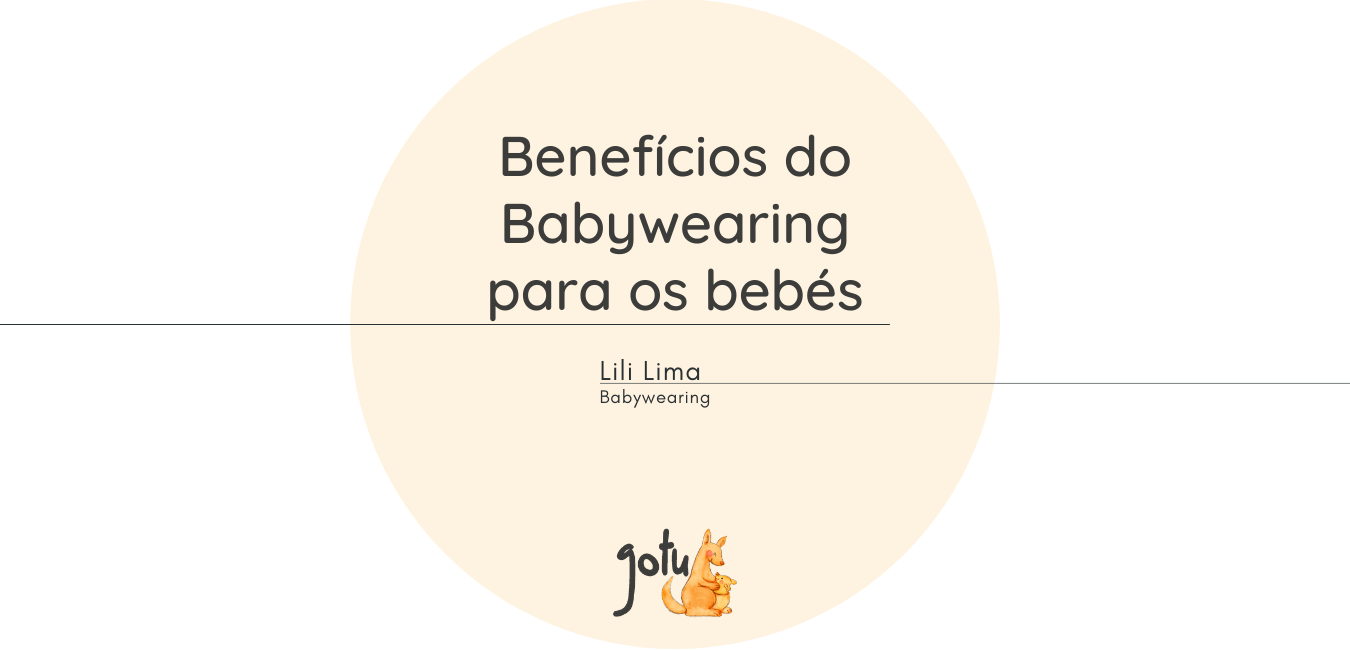The lap, the mother, the warmth, the love are all the baby needs!
And babywearing provides it all, at the same time!
And it still has advantages!!!
- Helps reduce babies' crying by approximately 50%
- Helps reduce colic, reflux and regurgitation
- Help with breastfeeding
- Promotes weight gain
- Calm down
- Promotes healthy development of baby's spine and hips
- Helps prevent and correct hip dysplasia
- Improves muscle development - motor coordination and sense of balance
- Position of comfort and physical and emotional comfort - intrauterine position
- Allows babies to spend more time in a calm, alert state - ideal for learning and development

- Optimizes mental development and helps develop social skills - understanding the rules of communication and facial expressions from an early age
- They feel more integrated into the family routine - thus improving their communication and interactivity skills
- They are more independent and interact better with their surroundings
- It keeps us safe from everyday dangers (people who like to put their hands on babies and give them kisses and hold them and… and…. and….)
- They are calmer, sleep more and better with the continuous rocking and the mother's heartbeat, the baby feels like he is in the womb again
- They breathe cleaner air - the air at the height of the car is the most polluted by dust and gases from car exhaust pipes. This pollution is dissipated with height.
- Prevents skull deformations (plagiocephaly) due to excessive use of baby carriers or pushchairs
When we put the baby to bed or in the crib, he will feel alone!
His mother has suddenly disappeared!!! He is no longer rocked like he used to be. The heart and bowel sounds that accompanied him for about 40 weeks are also no longer heard and the space where he is lying is so large that he can even lie down! It is a big change, but it cannot be radical.

Trying to simulate what the baby felt during pregnancy by carrying the baby next to the mother in her arms is the solution. However, we are not always prepared to carry a baby in the same position for so long, especially when the baby starts to gain weight. Therefore, carrying the baby in the arms is often replaced by the stroller (a change that, emotionally speaking, harms the relationship).
In some indigenous cultures where babywearing is common, babies typically cry for a few minutes a day, unlike Western babies who can cry for hours a day.
Crying too much can harm your baby's mental development, due to the amount of stress hormones that flood the baby's brain. Babies who don't cry as much will spend their energy on more important activities like eating, observing, playing and even growing.
Studies not only support the safety of babywearing, but establish it as a biological imperative.
http://www.wearsthebaby.com
https://babywearinginternational.org/what-is-babywearing/









